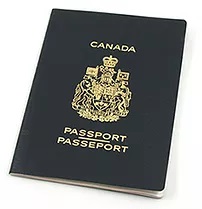Canada offers citizenship through naturalization and by birth in Canada.
To qualify for citizenship through naturalization, Canadians with 3 years of qualifying permanent resident status during the preceding 5 years may apply for Canadian citizenship.
Canadian Citizenship Requirements
- Have met any applicable requirement under the Income Tax Act to file income taxes for any four taxation years that are fully or partially within the six years immediately before you apply
- Been physically present in Canada for at least 183 days during any of the three qualifying calendar years that are fully or partially within the five years immediately before you apply
- Intend to reside in Canada OR work outside Canada in or with, or accompany certain family members employed in or with: the Canadian Armed Forces or the federal public administration or the public service of a province
- Be able to communicate (speak and understand) in English or French (if you are 65 years of age or older, this does not apply)
- Be able to demonstrate, in English or French, knowledge about Canada and the responsibilities and privileges of citizenship (if you are 65 years of age or older, this does not apply)
- 18 years old or older
- Have adequate knowledge of Citizenship Language Requirement, if under age 64

Minor Application (under 18 years of age)
Minors under 18 years of age may apply for citizenship if they are a permanent resident and have a parent who is either a Canadian citizen, or who is applying for citizenship at the same time. The completed application and processing fee is all that is required — they do not need to take the citizenship test.
You may be ineligible for Canadian citizenship if you
- Are under a removal order
- Have a criminal record or are facing changes in Canada
- Been refused Canadian citizenship as a result of misrepresentation
- Had your Canadian citizenship revoked
Citizenship Revocation Process
The revocation of Canadian citizenship is a very serious matter that will likely have a tremendous impact on the life and future of the person concerned. Depending on the reasons provided for seeking revocation, a person who loses their citizenship may also lose their permanent residence and face removal from Canada. If you or a family member is facing the revocation of citizenship and want to challenge this decision, legal counsel is important as this is a highly complex area of law.
Why can the Government seek to take citizenship away?
If Immigration Refugee and Citizenship Canada (IRCC) believes that you obtained your citizenship through “false representation or fraud or by knowingly concealing material circumstances”, they can start proceedings to take citizenship away from you. This means, that if you were untruthful in setting out your period of residence in Canada or, for example, did not disclose a criminal record that you are at risk of losing your citizenship.
Recently the Government has passed new amendments to the Citizenship Act that will also allow – when the new provisions come into force – IRCC to take citizenship away from individuals who are believed to be involved in acts of terrorism and/or has committed treason against Canada.
What happens if my citizenship is revoked?
If you were honest on your application for permanent residence, and so the only errors are with your citizenship application, then on loss of citizenship you become a permanent resident. For example, if your days of declared residence in Canada were wrong, you would again become a permanent resident of Canada.
It is possible that on return to being a permanent resident that you will face additional challenges. If, while you were a permanent resident of Canada, you committed a crime overseas and did not disclose this on your citizenship application, then on return to being a permanent resident (after loss of citizenship) you may face allegations that you are inadmissible to Canada for criminality.
On the other hand, if you also misrepresented yourself on your permanent residence application then loss of citizenship will lead directly to loss of permanent resident.
What is the process for citizenship revocation?
The process of citizenship revocation begins with IRCC sending a Notice of Intent to Revoke Citizenship. The Notice will outline the grounds for revocation: the summary of IRCC’s case against you.
If you receive this Notice, you have the right to request that the matter be referred to the Federal Court for review within 30 days. The Federal Court process will begin with IRCC filing a Statement of Claim, which will set out in detail the reasons why IRCC believes that your citizenship should be revoked. You respond to this by filing a Statement of Defense. This is a highly complex process that has legal and financial implications. It is recommended that you seek experienced legal counsel to assist you if you find yourself before the Court in citizenship revocation proceedings.
Should the Federal Court find that IRCC’s allegations are inaccurate and/or insupportable, then the matter ends there and you maintain citizenship. However, if the matter is not referred to the Federal Court or if the Court finds that IRCC’s allegations are well-founded, then the Minister may proceed to submit a report to the Governor in Council recommending that citizenship be revoked.
This report by the Minister to the Governor in Council is to be disclosed to you- you then have the opportunity to make written submissions. These submissions would be attached to the final report provided to the Governor in Council, who must then determine whether the revocation should be carried out. If the Governor in Council finds that citizenship should be revoked, their decision is carried out by an Order in Council. If this happens to you, you still have the right to have the Federal Court judicially review the Governor in Council’s decision.
